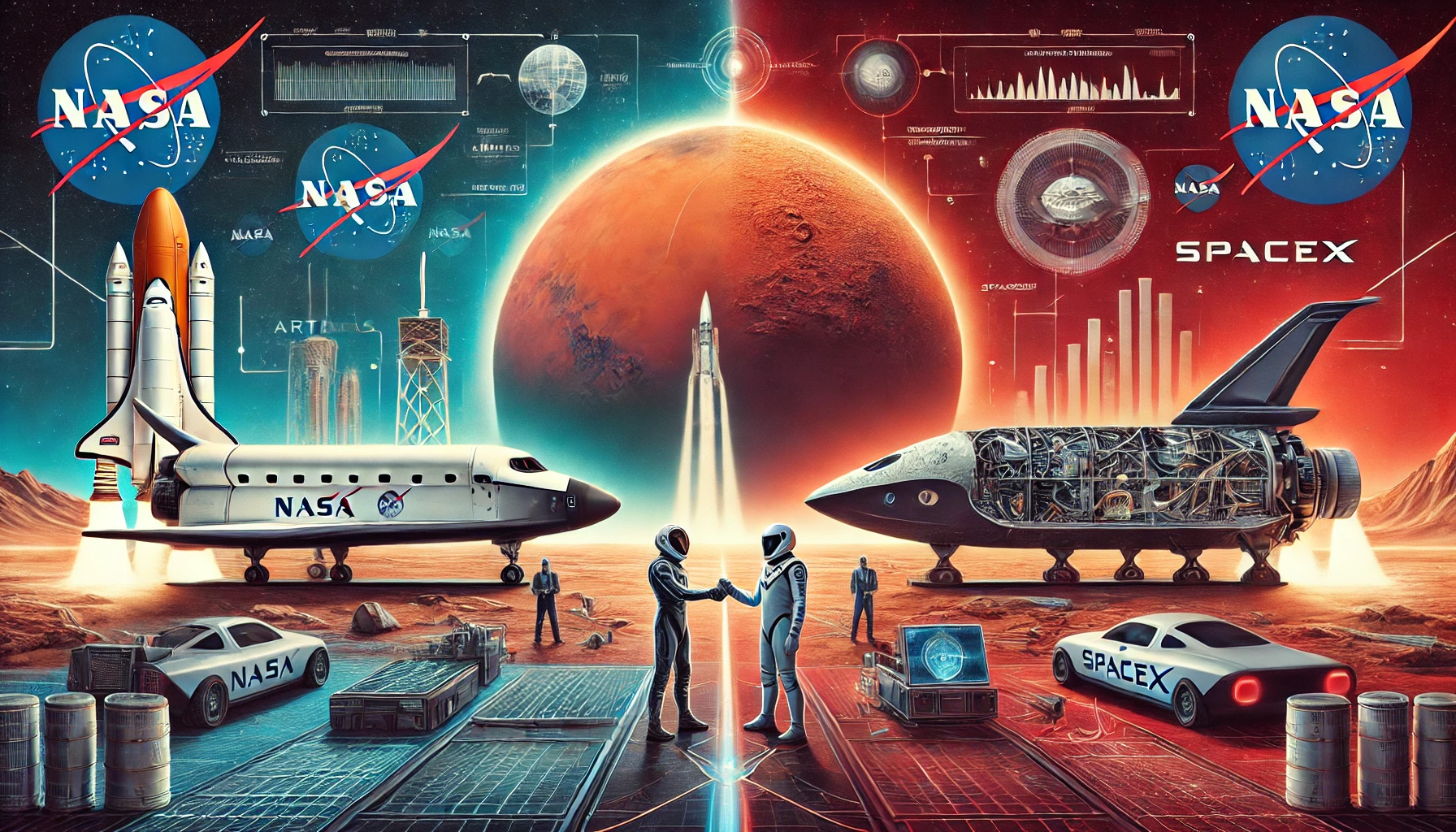The Race to Mars: How SpaceX and NASA Are Collaborating (and Competing) to Put Humans on the Red Planet

The Space Race: A New Era
Remember the space race between the U.S. and the Soviet Union? Well, buckle up, because it's happening again, but this time the destination is Mars, and the competitors are NASA and SpaceX. Both are working toward the same goal: putting humans on the Red Planet. But don't be fooled. This isn't just a friendly collaboration with high-fives and rocket emojis. There's a subtle rivalry simmering under the surface.
SpaceX's Bold Ambitions: One Ticket to Mars, Please
Elon Musk, the ever-ambitious visionary behind SpaceX, has made it clear: he wants to put humans on Mars and make life multi-planetary. No big deal, right? His plan includes using SpaceX's Starship, a fully reusable spacecraft designed to ferry cargo and passengers to Mars and beyond. The goal is to have the first humans step foot on Mars by the 2030s, and Musk is known for pushing boundaries. However, his aggressive timelines have raised a few eyebrows. Can SpaceX really pull it off? Well, Musk is known for over-promising but sometimes over-delivering, so it's anybody’s guess.
NASA's Pragmatic Approach: Slow and Steady Wins the Race?
On the other hand, we have NASA. While SpaceX is ready to pack its bags and blast off tomorrow, NASA is taking a more cautious approach. Their Artemis program aims to return humans to the Moon as a stepping stone for Mars. Why the Moon first? Well, NASA's strategy is all about sustainability. They want to ensure the infrastructure is in place for long-term missions, including refueling stations, life support systems, and a solid understanding of what it takes to survive on another world. Unlike SpaceX, NASA isn’t rushing to the 2030 deadline. Instead, they’re focused on a methodical, science-based approach.
Collaborators or Competitors? A Bit of Both
NASA and SpaceX have a bit of a love-hate relationship. On one hand, they collaborate closely. SpaceX's Falcon 9 rockets regularly launch NASA astronauts to the International Space Station as part of the Commercial Crew Program. NASA also relies on SpaceX for satellite launches and other missions. On the other hand, there's a healthy dose of competition, especially when it comes to Mars. NASA’s focus on science contrasts with SpaceX’s 'let’s-go-now' mentality, and both organizations have different ideas about how humanity should explore and colonize the planet.
Timelines and Technology: Who Will Get There First?
The timelines for both SpaceX and NASA differ. SpaceX, in typical Musk fashion, is gunning for Mars by 2024 for uncrewed missions and 2026 for crewed ones. NASA, however, has its sights set on the late 2030s for a human mission, using its Space Launch System (SLS) and Orion spacecraft. In terms of technology, SpaceX has the advantage of innovation. Their Starship is built with reusability in mind, designed to reduce costs and increase the frequency of space travel. NASA’s SLS, while powerful, is criticized for its cost overruns and delays. However, SLS remains NASA's bet for heavy-lift capabilities, a critical factor for long-duration missions to Mars.
Challenges on the Horizon: More Than Just Rocket Science
While the race to Mars sounds exciting, it's not all sunshine and solar panels. Both SpaceX and NASA face enormous challenges, from the psychological effects of long-duration space travel to the logistics of building habitats on a planet with no breathable atmosphere. Radiation exposure is another critical issue that NASA is studying, as Mars lacks the protective magnetic field Earth has. SpaceX, on the other hand, is focusing on technology solutions, such as developing radiation-shielded spacecraft and finding ways to make Mars more habitable. The question remains: Will these challenges delay the journey, or will human ingenuity find a way around them?
Conclusion: Who Will Win the Race to Mars?
So, who will win the race to Mars? It's hard to say. SpaceX has the boldness and innovation, while NASA has the experience and patience. In reality, both might need each other more than they’re willing to admit. As Musk pushes boundaries and NASA ensures sustainability, the collaboration could lead to a successful human mission to Mars sooner than either could achieve alone. Will it be SpaceX's Starship or NASA's SLS that touches down on the Red Planet first? Only time will tell.
A Final Thought: What Do You Think?
Who do you think will reach Mars first, SpaceX or NASA? Are you Team Musk, ready to go full throttle to the Red Planet, or Team NASA, preferring a slow and steady approach? Share your thoughts and join the conversation!



